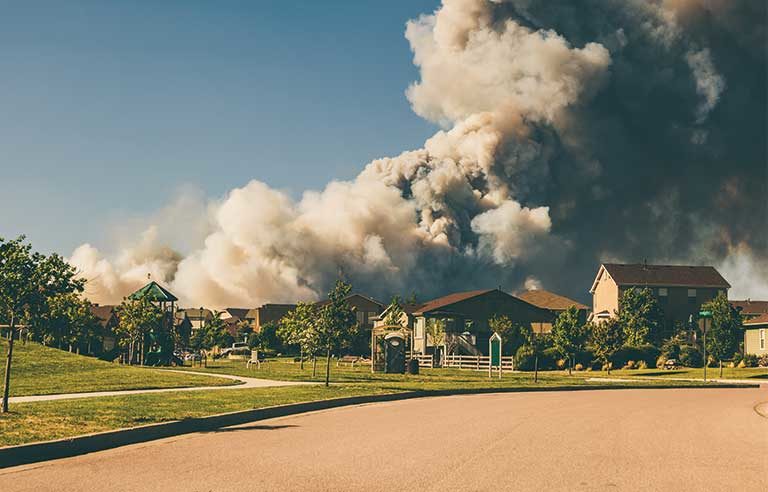Protecting workers from wildfire smoke: Washington L&I launches webpage

Tumwater, WA — A new webpage from the Washington State Department of Labor & Industries is intended to help employers protect workers – both indoors and out – from the adverse effects of wildfire smoke.
Wildfire smoke can create or worsen a number of health conditions, including bronchitis, pneumonia, asthma and chronic obstructive pulmonary disease, as well as irritate the eyes, nose and throat, according to Washington L&I. Workers 65 and older, those who have heart or lung disease, and those who work in hazardous occupations are at increased risk, as are remote and lone workers.
The webpage highlights common symptoms, how to determine air quality, the value of respirators, workers’ rights and how to protect workers in various settings.
For outdoor workers, Washington L&I recommends employers:
- Relocate work to less smoky areas.
- Reschedule work until air quality improves.
- Reduce the level and duration of workers’ physical exertion.
- Provide enclosed structures with filtered air for workers, where feasible.
- Make available enclosed vehicles, if possible, and use the air conditioner’s recirculate mode. Keep vents and windows closed.
For indoor workers, employers should:
- Ensure heating, ventilating and air conditioning systems are working properly and air filters are clean and properly sealed.
- Seek the highest filtration rating an HVAC system will support and use the highest rating possible when smoke is present.
- Review the system with a qualified HVAC technician or ventilation engineer before reducing a building’s air intake to ensure slightly positive pressure, which ensures pollution doesn’t enter the building.
- Use portable high-efficiency particulate air cleaners to improve the air quality in small, defined spaces while avoiding items that produce ozone – an irritant to the lungs.
- Keep indoor air clean – don’t smoke, use candles or vacuum.
Post a comment to this article
Safety+Health welcomes comments that promote respectful dialogue. Please stay on topic. Comments that contain personal attacks, profanity or abusive language – or those aggressively promoting products or services – will be removed. We reserve the right to determine which comments violate our comment policy. (Anonymous comments are welcome; merely skip the “name” field in the comment box. An email address is required but will not be included with your comment.)

